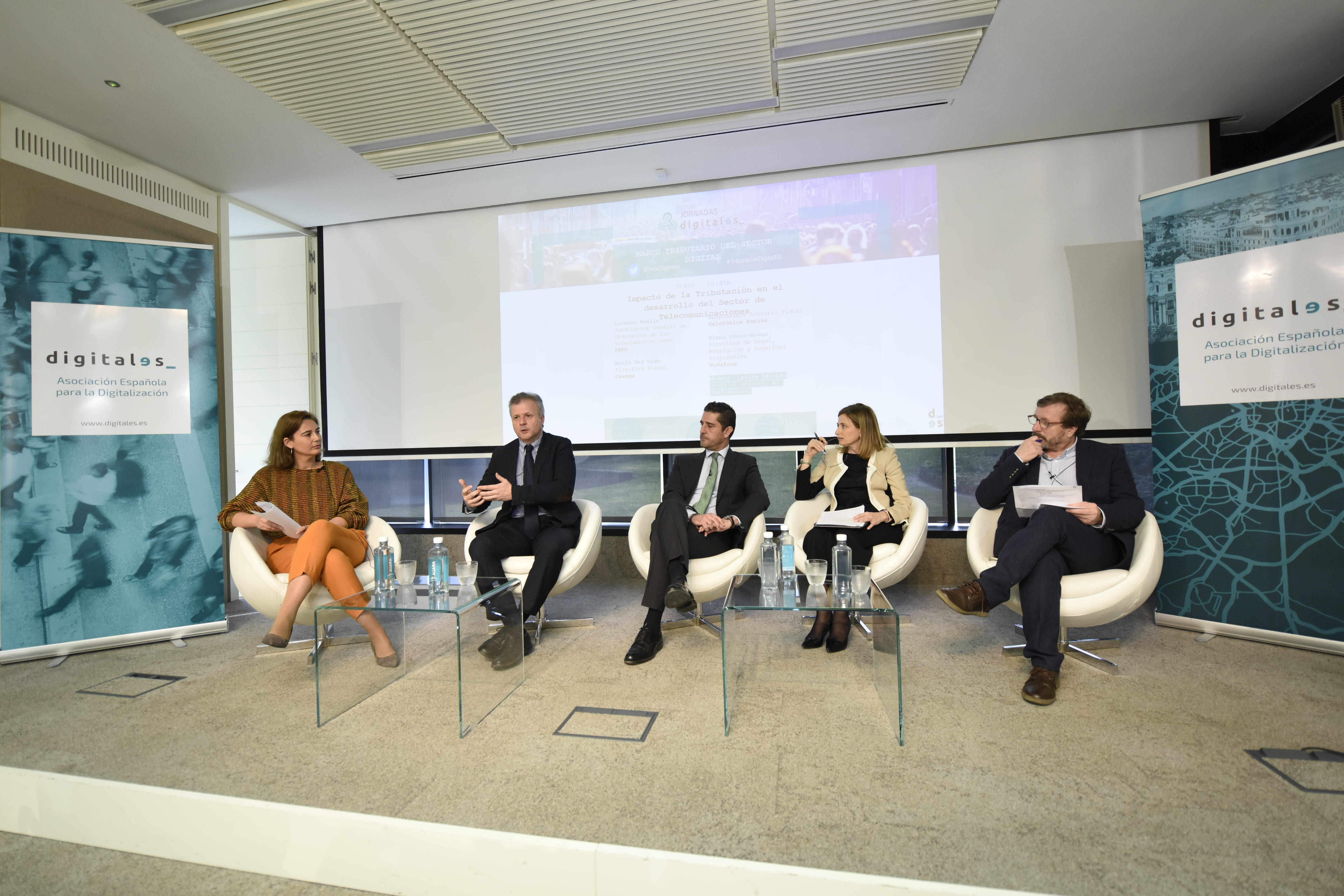18/02/2019
PRESS RELEASE
Conference on the Tax Framework in the Digital Sector
Taxation threatens sustainability and investment in the telecommunications sector
- Telecommunications companies propose a system that reduces tax complexity, reduces legal uncertainty and provides a level playing field for all.
- The Spanish Association for Digitalization, DigitalES, has brought together public and private decision makers in taxation to analyze the impact of the multiple tax burdens suffered by the telecommunications sector and technology companies in Spain.
- Companies are calling for a tax framework that adjusts to the economic capacity of companies, as well as to the significant investment effort required for the technological take-off of the other sectors of the economy.
Madrid, February 18, 2019. DigitalES, the Spanish Association for Digitalization and technology sector employers, held a conference this Monday on taxation of the digital sector, to analyze the main taxes to which technology and telecommunications companies are subject, and proposals for a new tax framework to ensure their sustainability.
Loss of competitiveness, over-regulation, disincentives to investment and double taxation are just some of the consequences that experts have been warning about with respect to recent initiatives proposed to regulate so-called digital services.
Taxation and economic capacity of the sector
In a joint discussion with the SEAD’s Deputy Director General for Telecommunications Regulation, Lorenzo Avello, the main tax managers of the operators (Orange, Vodafone and Telefónica) highlighted their concern about an excessively prolix and complex tax system, which “puts at risk” their investment capacity, something that is particularly critical to guarantee in a sector that demands huge investments (in 2016 alone, investments in infrastructure development and deployment amounted to €5.6 billion). The arrival of 5G will also mean a new investment cycle that is essential for the digital transformation of all other sectors of the economy.
As DigtialES President Eduardo Serra pointed out in his welcoming remarks, there is a strong correlation between GDP per capita and a country’s level of digitization. “The digital economy represents 5.6% of Spain’s GDP, but we are only capturing 13.5% of its potential,” he said. “If we want to continue to be the European country with the best telecommunications infrastructure, it is necessary that large technology companies with the capacity to help in the digitization of other productive sectors are not penalized by the tax collection efforts of such a severe tax system”.
The operators pointed out that the telco sector represents 2.9% of Spanish GDP, however, its companies contribute 30% of the total IAE collected by the AEAT through national and provincial quotas. This was expressed by María del Olmo, Fiscal Director of Orange, who also pointed out that this tax highlights the “discrimination of mobile telephony with respect to fixed telephony, when they are already convergent services in the market and the customer is the same”.
Elena Otero-Novas, Director of Legal, Regulation and Corporate Security at Vodafone highlighted that “the level of contribution of the sector is very high and not directly related to the economic capacity of the sector”. “The telco sector is fiscally discriminated against compared to other sectors,” Otero-Novas pointed out. “20% of the results of operations of these companies is destined to the payment of taxes”, which for the expert “goes against the principle of economic capacity that according to the constitution should govern the tax system”.
The CPI shows that, in the last 15 years, Spain has witnessed a price increase of up to 39%, compared to a decrease in the area of communications services of 19% (INE, EL MUNDO). This 58-point difference is explained by generalized inflation and lower prices for basic communications services. Thus, the revenues of the telecommunications market in Spain have fallen by a third of their volume in just a decade, from 35 million in 2007 to 24.3 million in the last fiscal year 2017 (CNMC).
An overburdened tax system
The variety of taxes borne by the telecommunications sector has resulted in practice in a high tax burden. The experts emphasized that the existence of different levels of public administrations involved also leads to a dispersion of this taxation, sometimes leading to duplicity in taxation and legal uncertainty.
A bleeding example for the sector of this tax overcharge is the RTVE tax that Law 8/2009 on the financing of the RTVE Corporation established for the telecommunications companies. Mr. Alvaro Rico, Head of Tax Advisory Services at Telefónica España, explained the origin of this law and pointed out that “61% of RTVE’s total budget is financed by the operators”, which bear 70% of the contribution established by the Law on financing with the levy on their telecommunication and pay TV services. Rico made reference to the 1,200 M Euros that in the last 10 years the operators have contributed to RTVE to regret that “part of these contributions are being detracted from the investments in infrastructures or in innovation necessary for a better competitiveness”.
The conference also included contributions from the heads of the PP, CS and PSOE parliamentary groups on tax matters, as well as the consulting firm Deloitte and the law firm Garrigues, to discuss the future of the digital tax, currently suspended due to the call for elections.
The companies coincided in criticizing the Government’s unilateral initiative despite the slow pace of agreement and implementation of the community mechanism, proposing a tax whose characteristics are far from those envisaged in the proposed Directive. For the technology companies gathered at the conference, the purpose of a tax figure of these characteristics should not be to tax those companies established in Spain, which are already taxed for their activities in our country, but to ensure that all companies operating in the digital sector are subject to the same tax obligations, in order to mitigate the current discrimination between them.
More information:
Communication Report
Rocio Alvarez
T. 91 351 36 36
Mail: ralvarez@report-comunicacion.com










